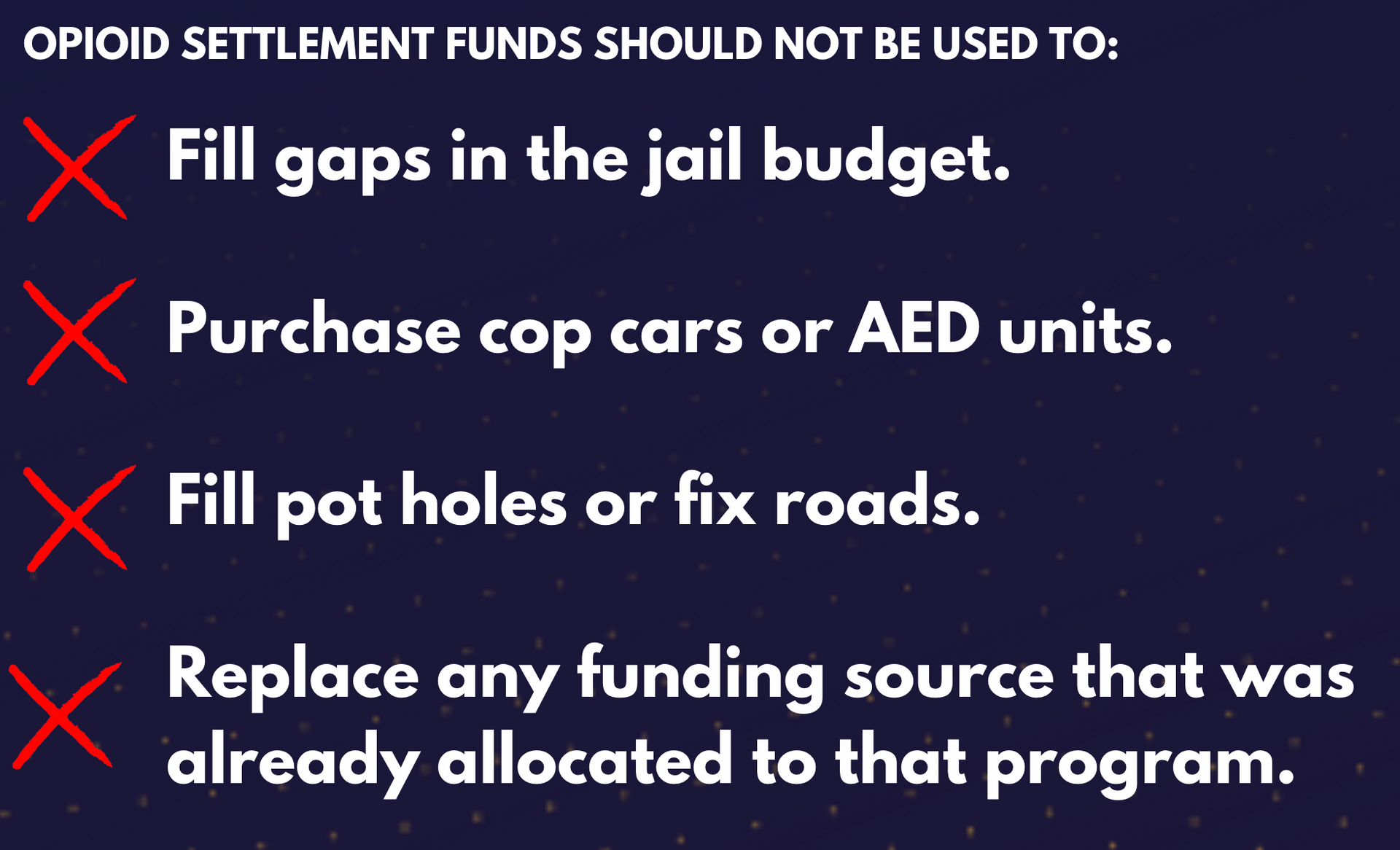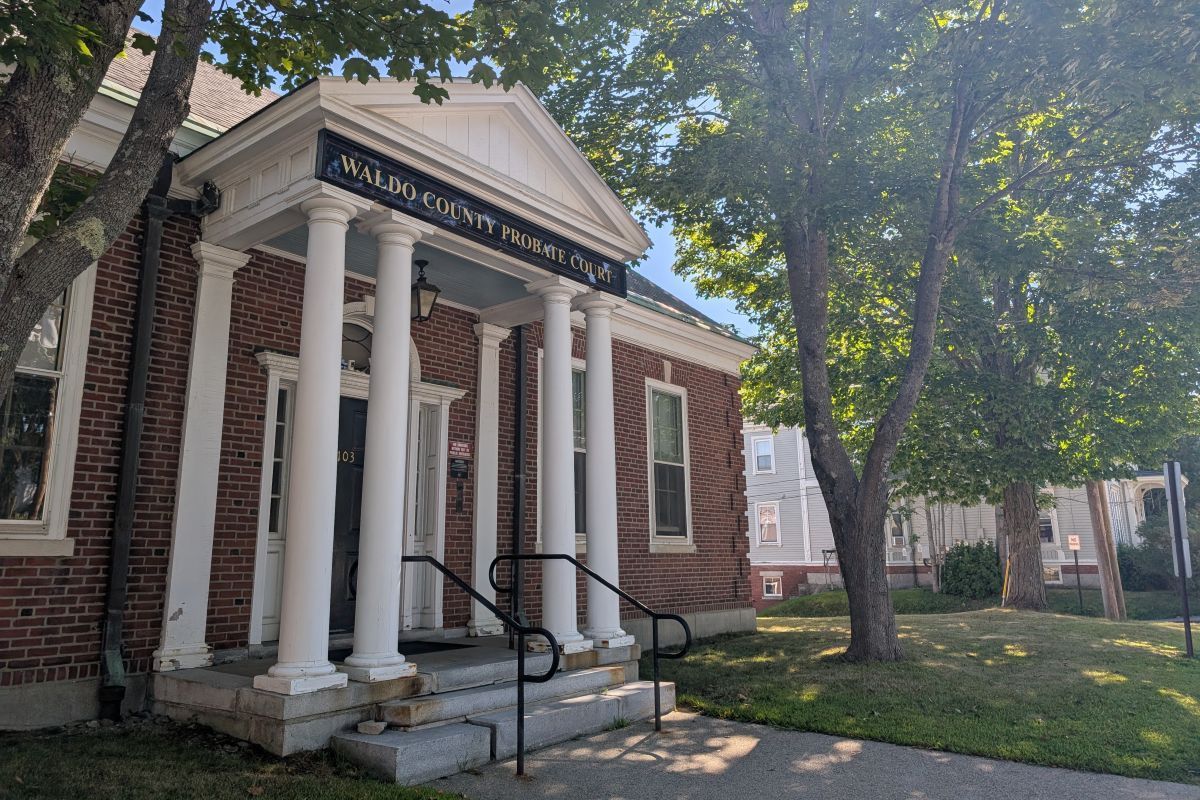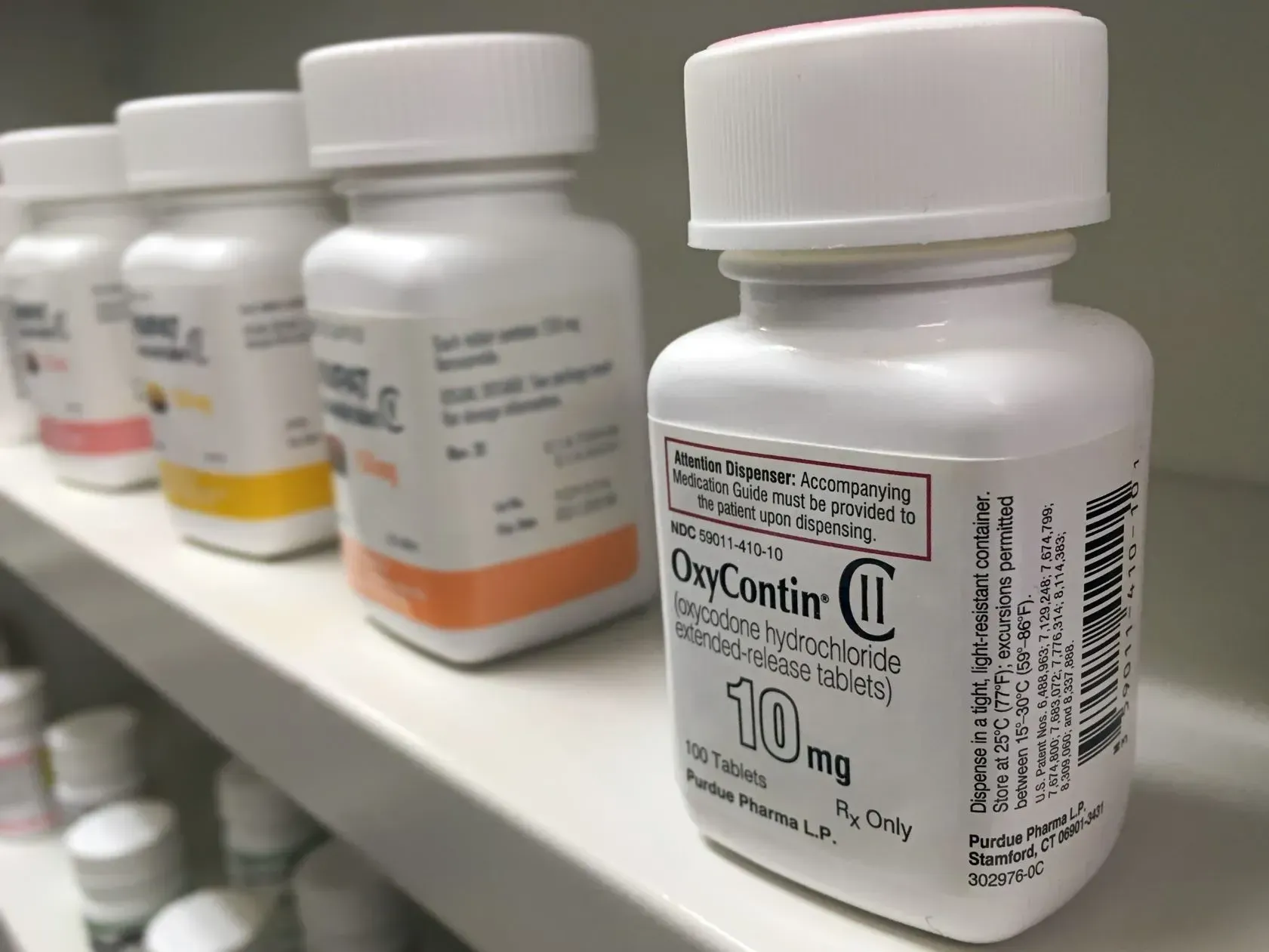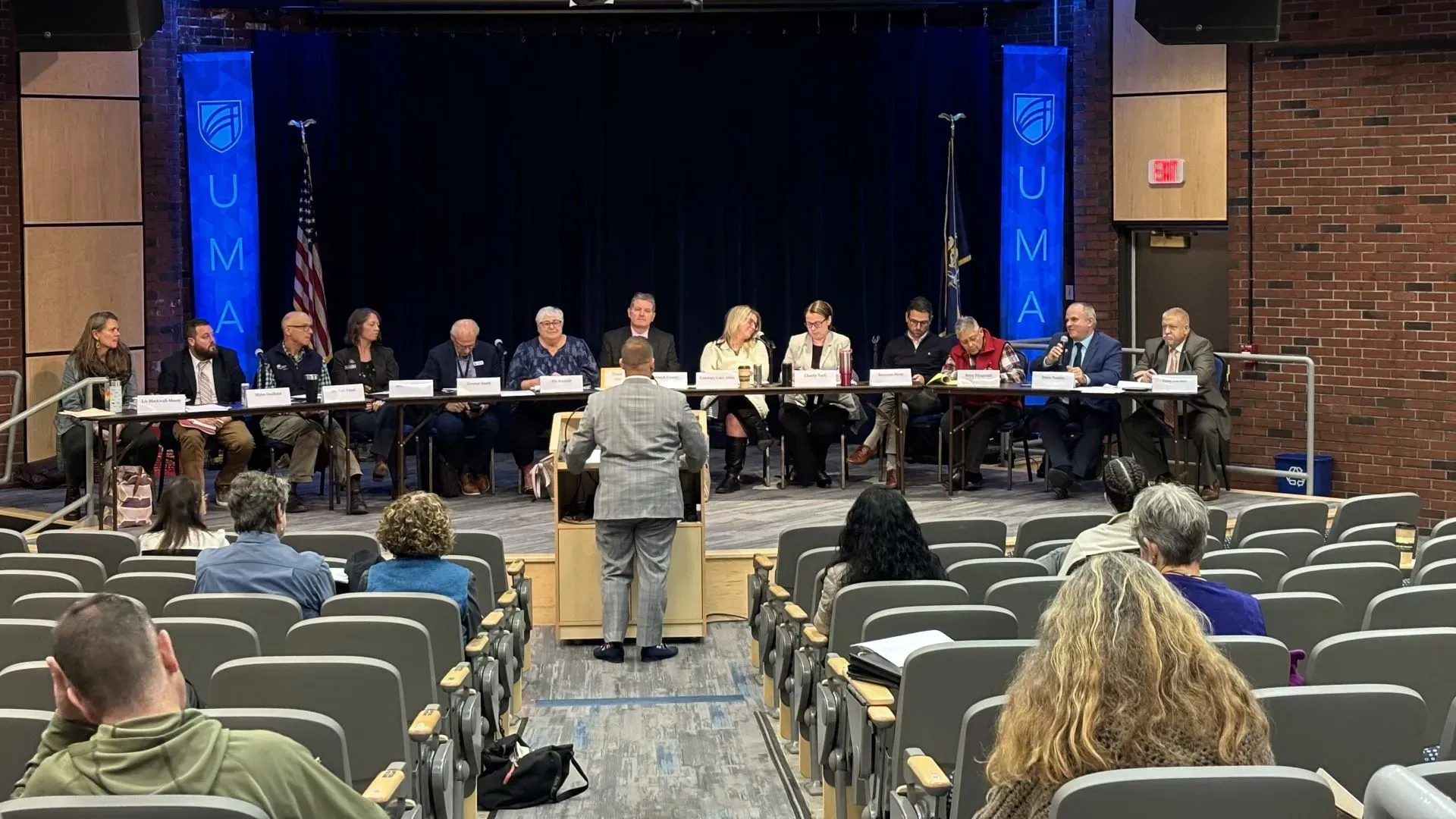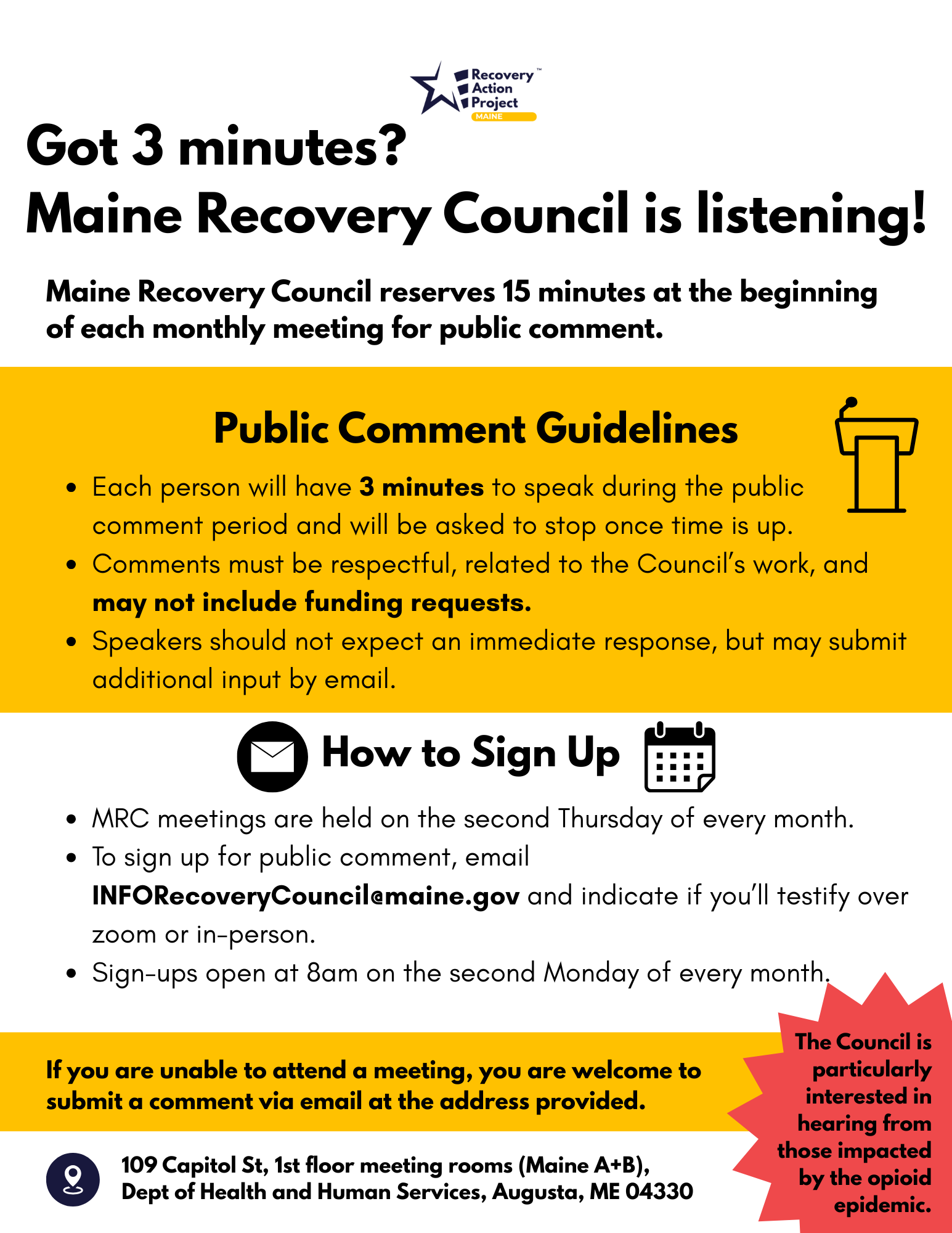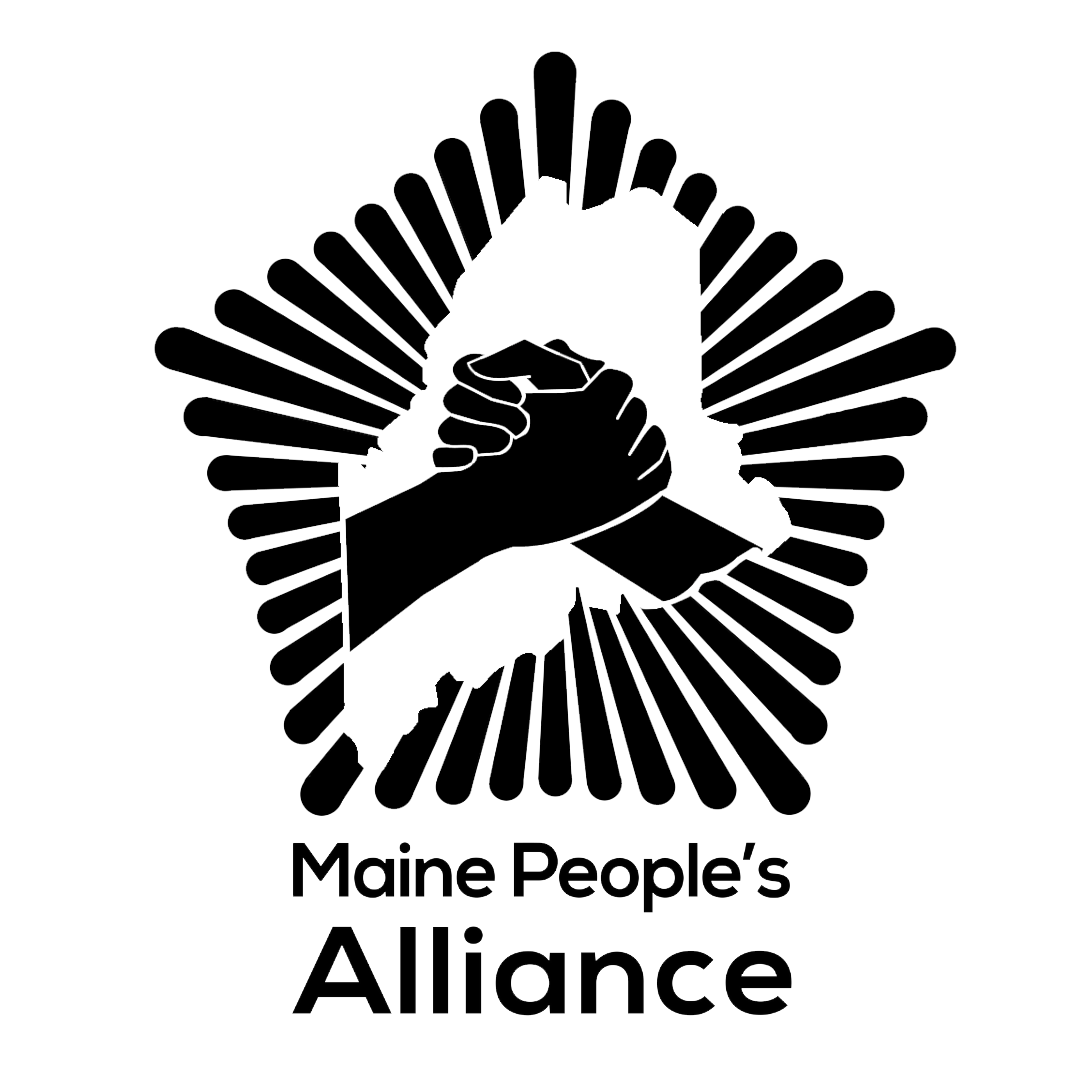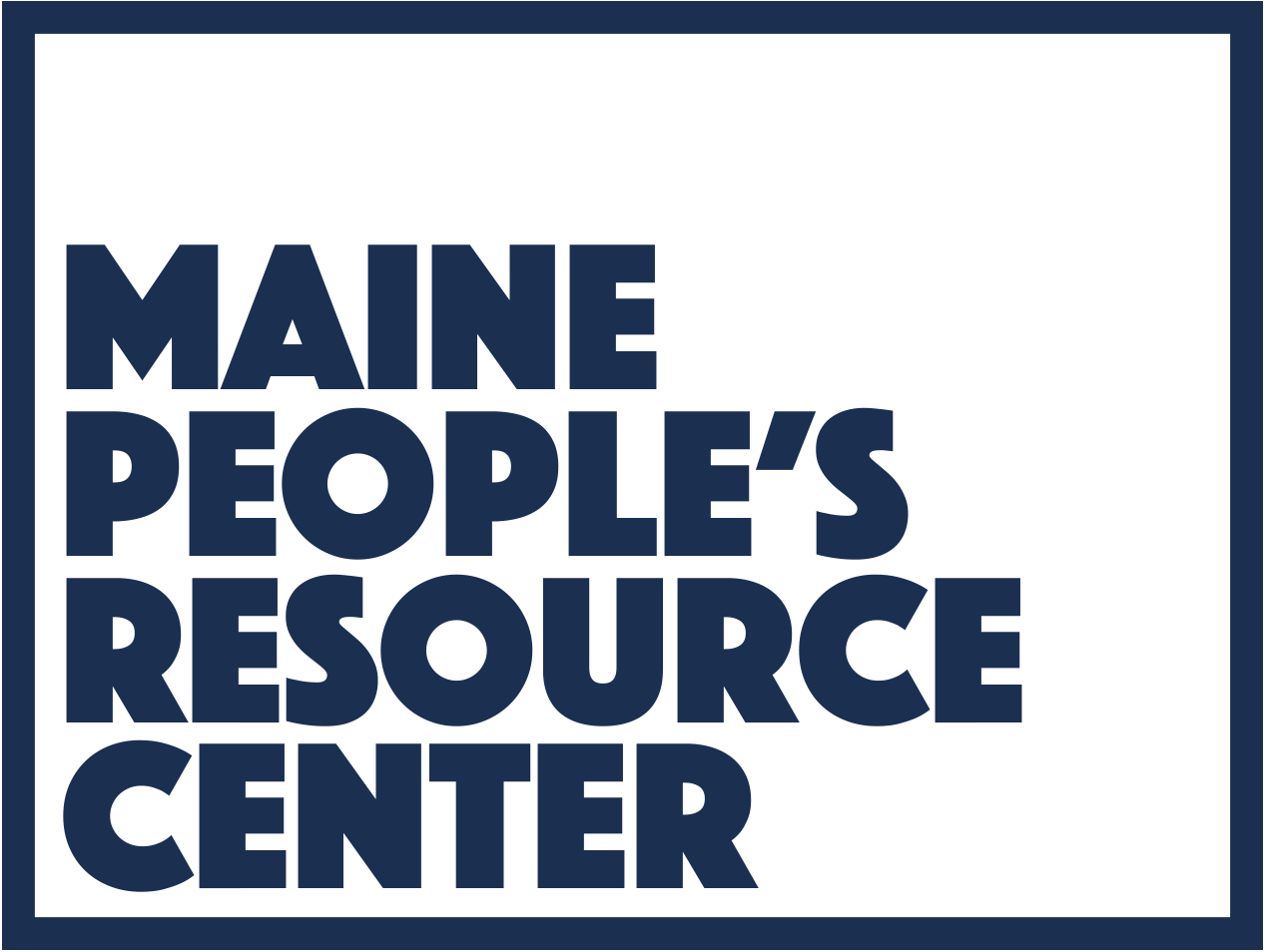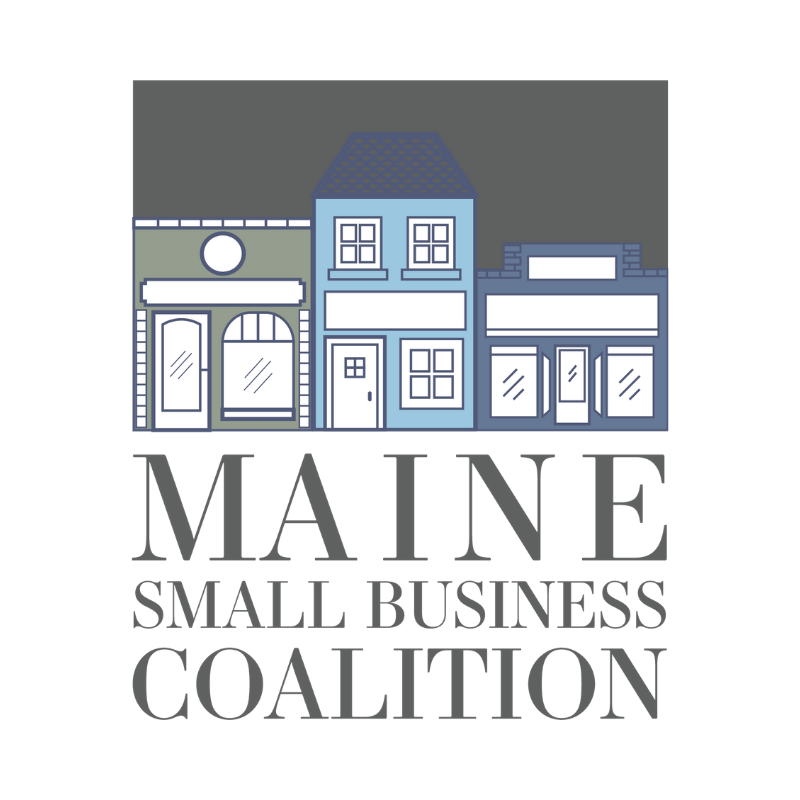We Stand for opioid settlement transparency.
Learn more & TAKE ACtION IN YOUR COMMUNITY.
Our Movement.
We are building a bold, people-powered movement in Maine that ensures opioid settlement funds are directed toward
life-saving, community-centered solutions—ensuring transparency in every funding decision related to opioid settlement funding made by power holders.
By building power from the ground up, we are ensuring sustained transparency, equity, and leadership from people directly impacted by the crisis.
Our Values.
- Lived Experience as Leadership
- Transparency & Accountability
- Local Empowerment
Our Message.
- This money belongs to the people most harmed by the opioid crisis. They deserve a voice in how it is spent.
- Transparency is not optional. Every subdivision, the Attorney General, and the Maine Recovery Council must make their spending decisions public and accessible.
- Recovery, harm reduction, prevention, and treatment are evidence-based. Maine must invest in what saves lives—not what stigmatizes or punishes people who use drugs and those in recovery.
Who Holds the power &
How do you access Them?
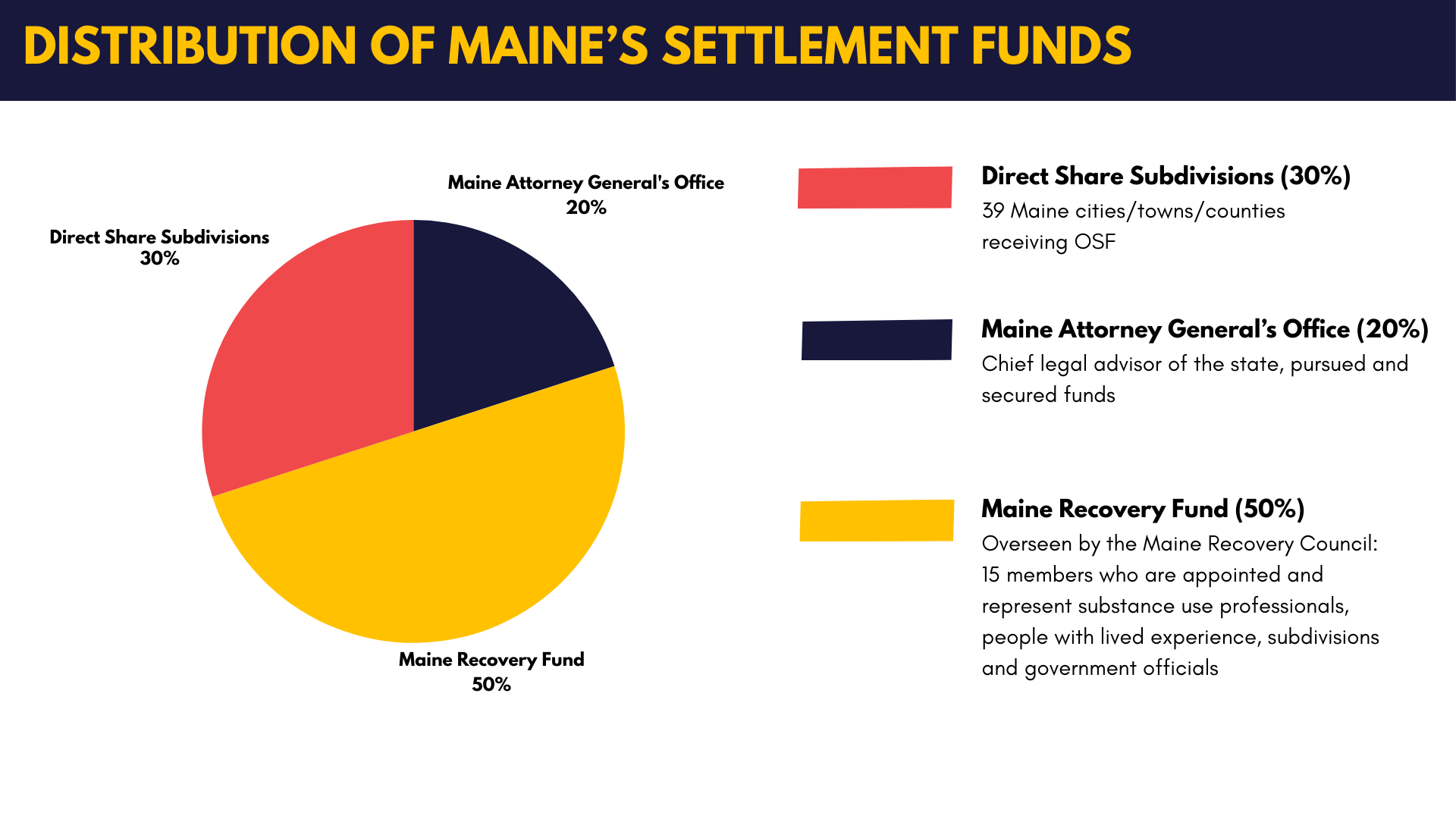
This is a directory for each funded subdivision, including contact information for decision makers, how much money they have received, and more!
Maine Opioid Settlement Funds in the News
WHAT SHOULD OPIOID SETTLEMENT FUNDS
BE SPENT ON?
Approved use of funds can be found in the Maine State-Subdivision Memorandum of Understanding and Agreement Regarding Use of Settlement Funds 2023. Example of uses are:
- Naloxone or other FDA-Approved drugs to reverse opioid overdoses
- Medication-assisted treatment (MAT) distribution
- Expansion of warm hand-off programs
- Supporting recovery centers and coaches
- Addressing the needs of justice-involved persons
- Preventing misuse of opioids
- Expanding syringe service programs
- Preventing overdose deaths and harm reduction
